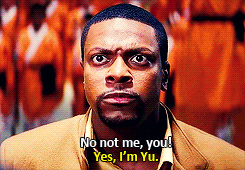“We do not see things as they are. We see things as we are.”
— The Talmud

In 2013, Daniel Burstein and a team of his coworkers at MECLABS were organizing a conference panel about email marketing. One of the panelists was Miriam Geller, a Director of Product Management at Yahoo Mail.
While preparing for the panel, the MECLABS team decided to run an A/B test on their email list to understand the impact of one of Yahoo Mail’s newest features: embedded video.
Daniel assigned the task to a member of his team. She assigned it to her team, and the project was begun.
A few days later, one of the people working on the project came to Daniel with a complaint. He said the people at Yahoo Mail wanted control of the testing and didn’t trust the MECLABS team, but the MECLABS team needed to run the A/B test in a particular way. Daniel said he would join the next call with the Yahoo team to help smooth things out.
A few minutes into the call, Daniel realized what was wrong. The Yahoo team was using the word “testing”, and the MECLABS team was using the word “testing”, but the two teams weren’t talking about the same thing.
The MECLABS team was talking about A/B split testing to determine what impact embedded videos had compared with a control group of people on an email list. The Yahoo team was talking about quality assurance testing. The embedded video features was new, after all, and the MECLABS mailing list was big. The Yahoo team were saying they needed to be in charge of making sure the new video feature was working with enough scale before sending it out to the MECLABS list. After that semantic difference was sorted out, the project (and both tests) went smoothly.
It’s silly, yet a business collaboration almost fell apart because of the silly misunderstanding. Understanding the language your partner or customer speaks is critical in business. Now please enjoy this cinematic recreation of Daniel’s situation: Youtube